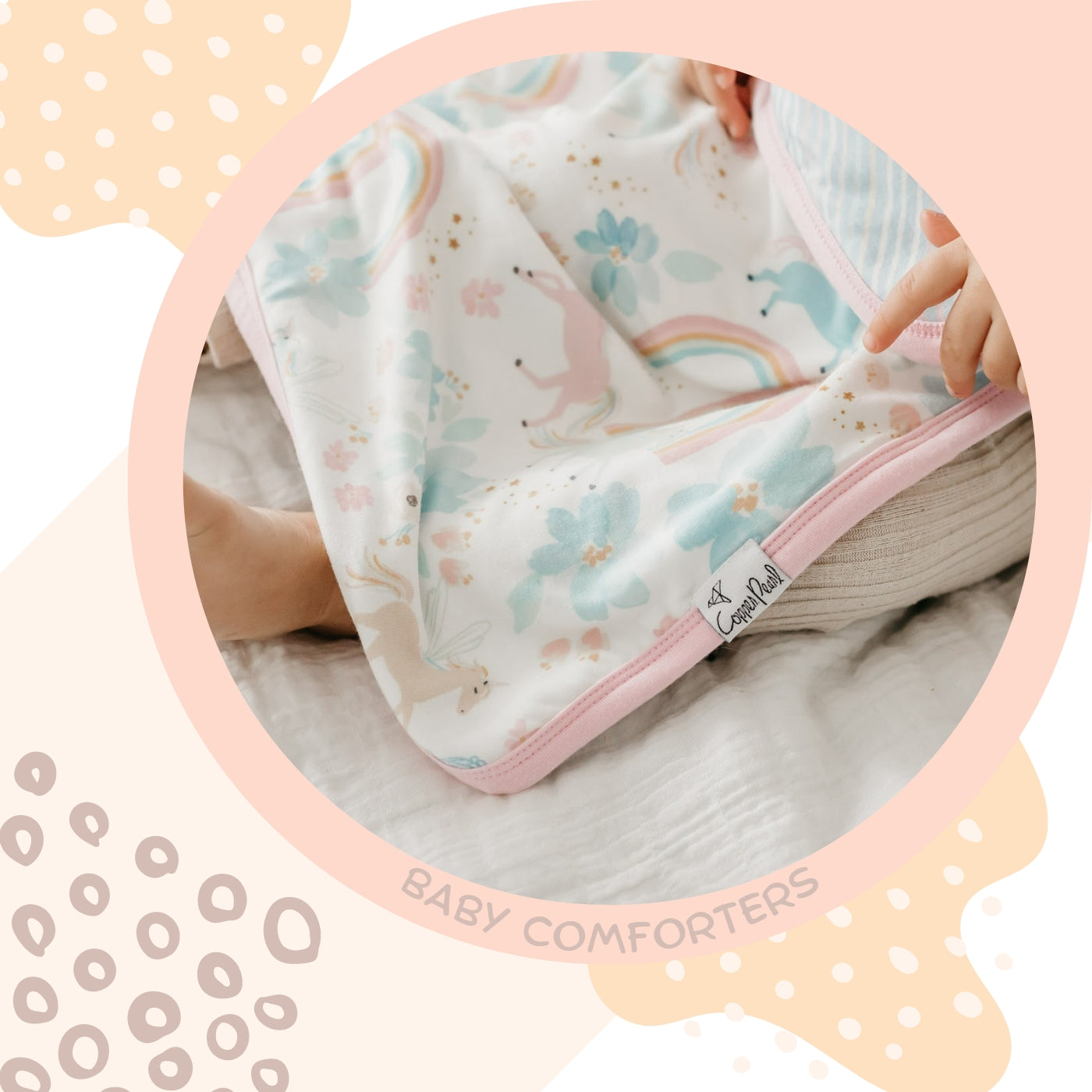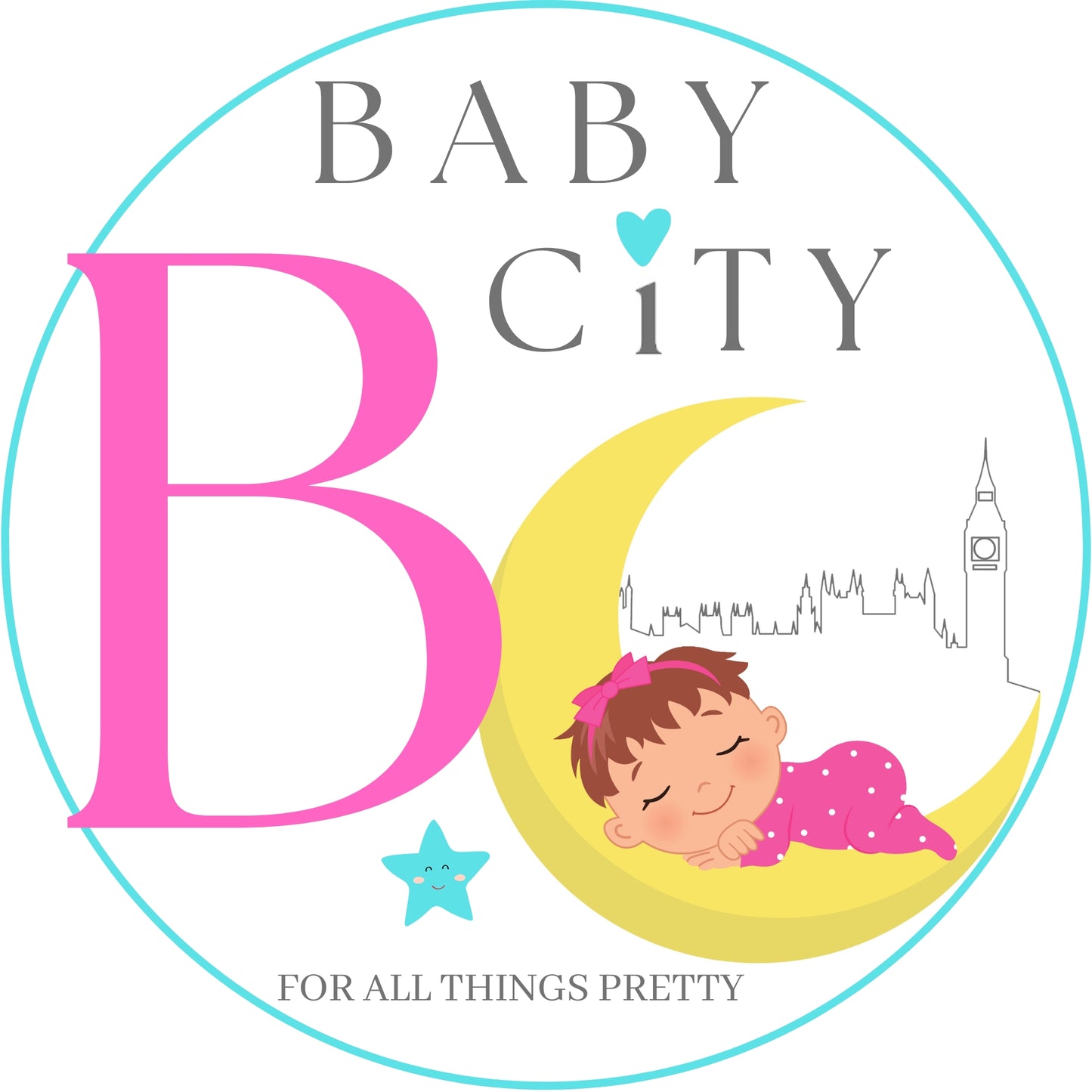
As a parent, we all want our children to be happy, healthy and feel secure. For many children, a comfort blanket can provide that sense of security and comfort. It's not just a simple piece of fabric - it's a valuable tool that can help children cope with stress and anxiety. In this blog post, we will explore the science behind baby comfort blankets and why they are so important for child development. We'll examine the psychological benefits of these blankets, how they provide a sense of security, and how they can help babies learn to self-soothe. We'll also provide some tips on how to choose the right comfort blanket for your child and how to safely introduce it into their life. So, let's dive in and discover the science behind baby comfort blankets!
1. Introduction: What are baby comfort blankets?
For many parents, baby comfort blankets are more than just an accessory for their little ones. These blankets are small, soft, and often made of plush materials that can provide comfort and a sense of security to babies and young children. It's not uncommon for babies to become attached to their comfort blankets and carry them around wherever they go, even as they grow older.
But what is it about these blankets that make them so special to babies? According to child development experts, baby comfort blankets can help provide a sense of familiarity and security to babies, especially during times of stress or change. The soft and cozy texture of the blanket can mimic the feeling of being hugged or held, which can help calm and soothe babies when they're upset.
In addition to providing comfort, baby comfort blankets can also help babies develop important cognitive skills. By exploring the texture and feeling of the blanket, babies can develop their sense of touch and learn about different materials and sensations. The familiar scent of the blanket can also help babies develop their sense of smell and recognize familiar scents and people.
Overall, baby comfort blankets can play an important role in a baby's emotional and cognitive development. As parents, it's important to choose a soft and safe blanket for your little one and encourage them to use it as a source of comfort and security.
2. Why is a comfort blanket important for a baby's development?
A comfort blanket, also known as a security blanket or a lovey, can play a vital role in a baby's development. Babies are born with an inherent need for comfort and security, and they often find it in the form of a soft, cuddly blanket that they can cling to.
Studies have shown that babies who have a comfort blanket are more likely to feel a sense of security and attachment to their caregiver. This attachment is important for a baby's emotional development and can have an impact on their ability to form healthy relationships later in life.
In addition to emotional benefits, a comfort blanket can also provide physical comfort to a baby. The soft texture of the blanket can help to soothe a baby and promote better sleep. This can be especially important during times of stress, such as when a baby is teething or going through a growth spurt.
Overall, a comfort blanket can be a valuable tool in a baby's development. It can provide a sense of security and comfort, promote healthy emotional attachment, and even help to soothe a baby's physical discomfort. As such, it's important for parents to consider the benefits of a comfort blanket when choosing items for their baby's nursery.
3. The psychological benefits of baby comfort blankets
Baby comfort blankets are more than just a soft and cuddly accessory for infants. They offer psychological benefits that can be vital for a baby's development and overall well-being.
One of the primary psychological benefits of a baby comfort blanket is that it can provide a sense of security and familiarity to the baby. Babies are born into a world that is entirely new to them, and everything can be overwhelming, from the bright lights to the unfamiliar sounds. A comfort blanket can help a baby feel like they have a piece of home with them, providing them with a sense of comfort and familiarity in a new and daunting environment.
Moreover, baby comfort blankets can also help with emotional regulation. Babies are often unable to communicate their feelings effectively, and this can lead to feelings of distress or anxiety. A comfort blanket can provide a soothing and calming effect, which can help the baby regulate their emotions and feel relaxed.
In addition to this, comfort blankets can also aid in the development of a baby's independence. As babies grow older, they begin to explore and become more curious about their surroundings. A comfort blanket can help them feel secure and confident as they venture out into the world on their own, providing a sense of comfort and familiarity wherever they go.
Overall, the psychological benefits of baby comfort blankets are significant and should not be underestimated. They can provide a sense of security, aid in emotional regulation, and aid in the development of independence. Therefore, it is important to consider comfort blankets as an essential item for your baby's overall growth and development.
4. The science behind the attachment between babies and their comfort blankets
The attachment between babies and their comfort blankets is not just a matter of habit or preference. There is actually science behind this phenomenon that has been studied by child development experts.
According to research, babies develop attachments to objects that provide them with a sense of comfort and security. These objects, such as comfort blankets or stuffed animals, act as a transitional object that helps babies cope with separation from their parents or primary caregivers.
Studies have shown that babies who have a comfort object are more likely to adapt to new environments and situations, and are more likely to be able to self-soothe when they are upset or anxious. This is because the object provides them with a sense of familiarity and comfort, which helps to reduce stress and anxiety.
Additionally, the sense of touch is also important in the attachment between babies and their comfort blankets. The soft and tactile texture of the blanket or stuffed animal provides a sensory experience that babies find soothing and calming.
Overall, comfort blankets are not just a cute accessory for babies, but they play an important role in their emotional development and wellbeing. Understanding the science behind this attachment can help parents and caregivers better understand the needs of their little ones and provide them with the comfort and security they need to thrive.
5. How to choose the right comfort blanket for your baby
Choosing the right comfort blanket for your baby can be a daunting task, but it's very important. The right blanket can provide a source of comfort and security for your little one, and can even become a cherished item that they hold onto for years to come. Here are some tips on how to choose the right comfort blanket for your baby:
1. Consider the material: The material of the blanket is important as it should be soft and gentle on your baby's delicate skin. Cotton, muslin, and fleece are popular choices for baby blankets.
2. Size and shape: The size and shape of the blanket should be considered depending on the age of your baby. For newborns, a smaller blanket that can be easily held is recommended, while larger blankets are suitable for toddlers.
3. Design: The design of the blanket can also be important. Some babies prefer blankets with a specific texture, pattern or color. It's important to choose a blanket that is visually appealing to your baby.
4. Safety: Safety is always a priority when it comes to choosing a comfort blanket for your baby. Make sure the blanket is free from any loose threads or embellishments that could pose a choking hazard.
5. Washability: Babies are known for their messes, so it's important to choose a comfort blanket that is easy to clean and maintain.
By considering these factors, you can choose the right comfort blanket for your baby, providing them with a source of comfort and security as they grow and develop.
6. Tips for introducing a comfort blanket to your baby
Introducing a comfort blanket to your baby can be a great way to promote a sense of security and comfort for your little one. Here are some tips for introducing a comfort blanket to your baby:
1. Choose the right blanket: When selecting a comfort blanket for your baby, choose one that is soft, cuddly, and made from breathable material. It should also be small enough for your baby to hold and carry around.
2. Introduce it early: Start introducing the comfort blanket to your baby at a young age, so they can form an attachment to it. Place the blanket near your baby during nap time or bedtime, or even during breastfeeding or bottle feeding.
3. Encourage your baby to explore: Allow your baby to touch, hold, and explore the blanket on their own. This can help them form a stronger bond with the blanket and feel more comfortable with it.
4. Use it during times of stress: When your baby is upset or stressed, offer the comfort blanket as a source of comfort. This can help your baby feel more secure and calm.
5. Make it a part of your routine: Incorporate the comfort blanket into your baby's daily routine. For example, you can make it a part of the bedtime routine by giving it to your baby during storytime or singing lullabies.
Remember, introducing a comfort blanket to your baby is a personal choice and not every baby will form an attachment to it. However, for those who do, a comfort blanket can be a valuable tool for promoting a sense of security and comfort.
7. How to help your baby transition away from their comfort blanket
Comfort blankets can be a lifesaver for both babies and parents, but there comes a time when it's necessary to transition away from them. This can be a challenging time for both you and your baby, but there are ways to make it easier.
The first step in transitioning away from a comfort blanket is to introduce a new comfort item. This could be a special stuffed animal or toy that your baby can snuggle with instead. It's important to let your baby choose their new comfort item and make it a positive experience.
Another way to help your baby transition away from their comfort blanket is to gradually reduce its use. Start by limiting the time your baby spends with the blanket each day until they no longer need it. This can be a slow process, so it's important to be patient and consistent.
It's also important to provide extra comfort and reassurance during this time. Offer extra cuddles and love, and create a calm and peaceful sleeping environment for your baby.
Remember, every baby is different and there is no set timeline for transitioning away from a comfort blanket. Some babies may be ready to give up their blanket at a young age, while others may need it for several years. The key is to be patient and understanding, and to provide your baby with the love and support they need during this important transition.
8. The importance of a backup comfort blanket
We all know how important baby comfort blankets are for little ones. They provide a sense of security, comfort, and familiarity, and can help them to self-soothe and fall asleep more easily. But what happens when your baby's favorite comfort blanket gets lost or damaged?
This is where the importance of a backup comfort blanket comes in. Having a spare blanket that your baby is familiar with and has slept with before can help to ease the transition if their favorite one is lost or damaged. It can provide a sense of familiarity and comfort during a potentially stressful time for both you and your baby.
In fact, many parents recommend having multiple comfort blankets on hand, as babies can become attached to more than one. It's also important to rotate the blankets occasionally to keep them fresh and prevent them from becoming too worn out.
When choosing a backup comfort blanket, it's important to choose one that is similar in texture, smell, and feel to your baby's favorite one. This will help to ensure that your baby still feels the same level of comfort and security with the backup blanket.
In summary, having a backup comfort blanket is an important part of ensuring that your baby feels safe and secure at all times. Whether it's a spare blanket or multiple options, having a backup can make all the difference in helping your little one to feel comfortable and at ease.
9. How a comfort blanket can help during stressful situations
Comfort blankets have been a staple in a baby's life for generations. They are soft, cuddly, and provide a sense of security and familiarity to the baby. However, their benefits extend far beyond just being a cute accessory for your baby. In fact, they can help your baby cope during stressful situations.
Babies are constantly absorbing information from their surroundings and can easily become overwhelmed. When faced with unfamiliar situations such as meeting new people, going to the doctor's office, or even being left with a babysitter, a comfort blanket can provide a sense of familiarity and comfort to the baby. It is a source of emotional support that can calm them down and help them feel more secure.
Moreover, comfort blankets can also play a role in a baby's sleep routine. As babies grow older, they start to associate certain objects with sleep, such as a favorite teddy bear or a comfort blanket. This association can help them feel more relaxed and comfortable when it's time for bed, which in turn can lead to a better night's sleep.
In summary, comfort blankets are not only cute and cuddly, but also play an important role in a baby's emotional and psychological development. They provide a sense of security and familiarity during stressful situations and can even improve a baby's sleep routine. So, the next time your baby reaches for their comfort blanket, remember that it is more than just a cute accessory.
10. Conclusion: The role of baby comfort blankets in a happy and healthy childhood
In conclusion, baby comfort blankets play an essential role in the emotional development of infants and young children. They provide a sense of safety and security, comfort during stressful situations, and a familiar object that can help soothe and calm a child. The science behind this is fascinating, as it shows that these blankets can activate the release of oxytocin, a hormone that helps to reduce stress levels and promote feelings of well-being.
Furthermore, baby comfort blankets can also help children develop important coping skills and emotional regulation abilities. By providing a safe and secure object that the child can turn to in times of need, they learn how to self-soothe and regulate their emotions. This can have long-lasting benefits throughout their childhood and into adulthood.
As parents and caregivers, it is important to recognize the value of baby comfort blankets and to encourage their use in a safe and responsible manner. By understanding the science behind these blankets and why they are important, we can help to promote happy and healthy childhoods for all children.

